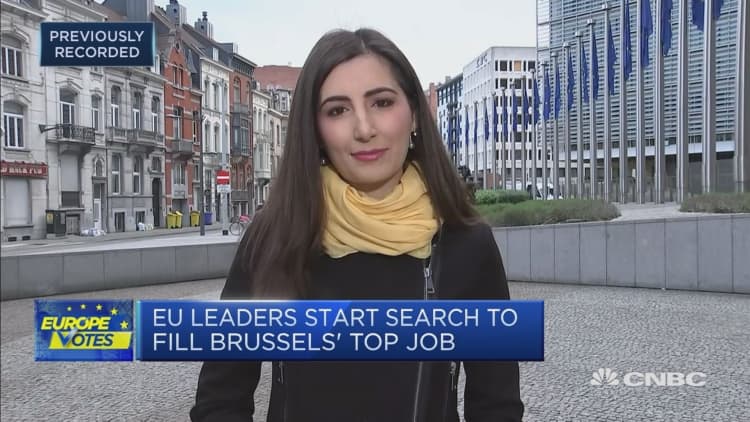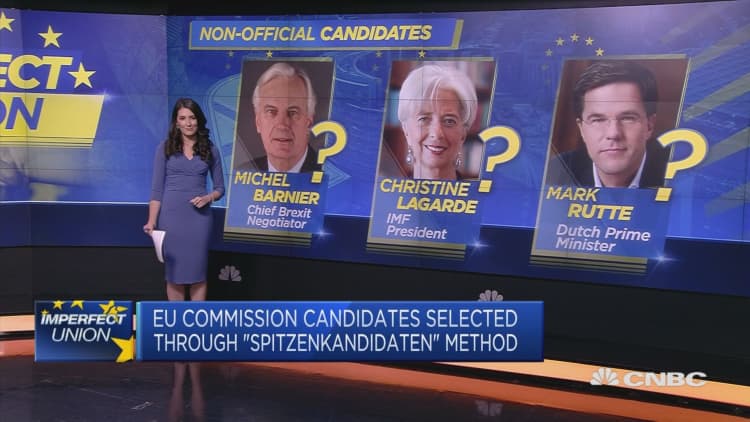"The clock is ticking," is a popular riposte used by EU officials during tense negotiations. But this time around, they are the ones racing against time.
Brussels has begun the search for a new president of the European Commission, the EU's executive arm. But given the political instability at a national level in member states like the U.K., Greece, Spain, Austria and Finland, the search has become much more pressing. But as yet, there's no clear date for any appointments.
"I don't know," Xavier Bettel, the prime minister of Luxembourg, told CNBC Tuesday when asked whether the EU will announce a president next month. Dutch Prime Minister Mark Rutte also told CNBC he hopes an agreement will be achieved by June 20, but he doesn't know whether that will be possible.
The next president — who'll replace Jean-Claude Juncker — needs to be approved by a majority of the 28 member states, but also by a majority of lawmakers at the European Parliament, the EU's legislative arm. Getting this double majority is a complicated exercise, even more so after last week's European Parliamentary elections which led to a more fragmented chamber.
Donald Tusk, the president of the European Council which represents the EU heads of state, spoke to reporters Tuesday night about the difficulties surrounding this process.
"I hope that, on that basis, we can provide clarity on all these posts already in June. But … this depends not only on my good will, but also on the good will of everyone involved," Tusk said.

Apart from a new chief for the Commission, the 28 heads of state will also have to find new presidents for the European Parliament, the European Council and the European Central Bank and a new foreign policy chief. Following the first official discussion among the country leaders on Tuesday, Tusk told reporters that they will seek a balance between the appointments.
"That is: The need to reflect the diversity of the Union when it comes to geography, the size of countries, gender as well as political affiliation. This will be our genuine aspiration. But … in the real world a perfect balance may be difficult to obtain," Tusk warned.
Speaking to CNBC ahead of the meeting Tuesday, Spanish Prime Minister Pedro Sanchez said: "If we put aside partisan interests and we focus on the qualifications of the potential candidates, I think we can reach an agreement by the end of June."
Irrespective of who's in the running, the next set of policymakers will be faced with a wide range of challenges, from addressing climate change to concerns on Brexit, cybersecurity and international trade. Trade could be a particular pressure point, with President Donald Trump hoping to enter negotiations with the EU while threatening tariffs on car exports. Experts have highlighted that the EU could be next in the U.S.' firing line if negotiations with China conclude.
"I'd say the main reason why we need a strong European leadership soon are the external challenges, as well as climate change," Guntram Wolff, director of the Brussels-based think tank Bruegel, told CNBC via email.



